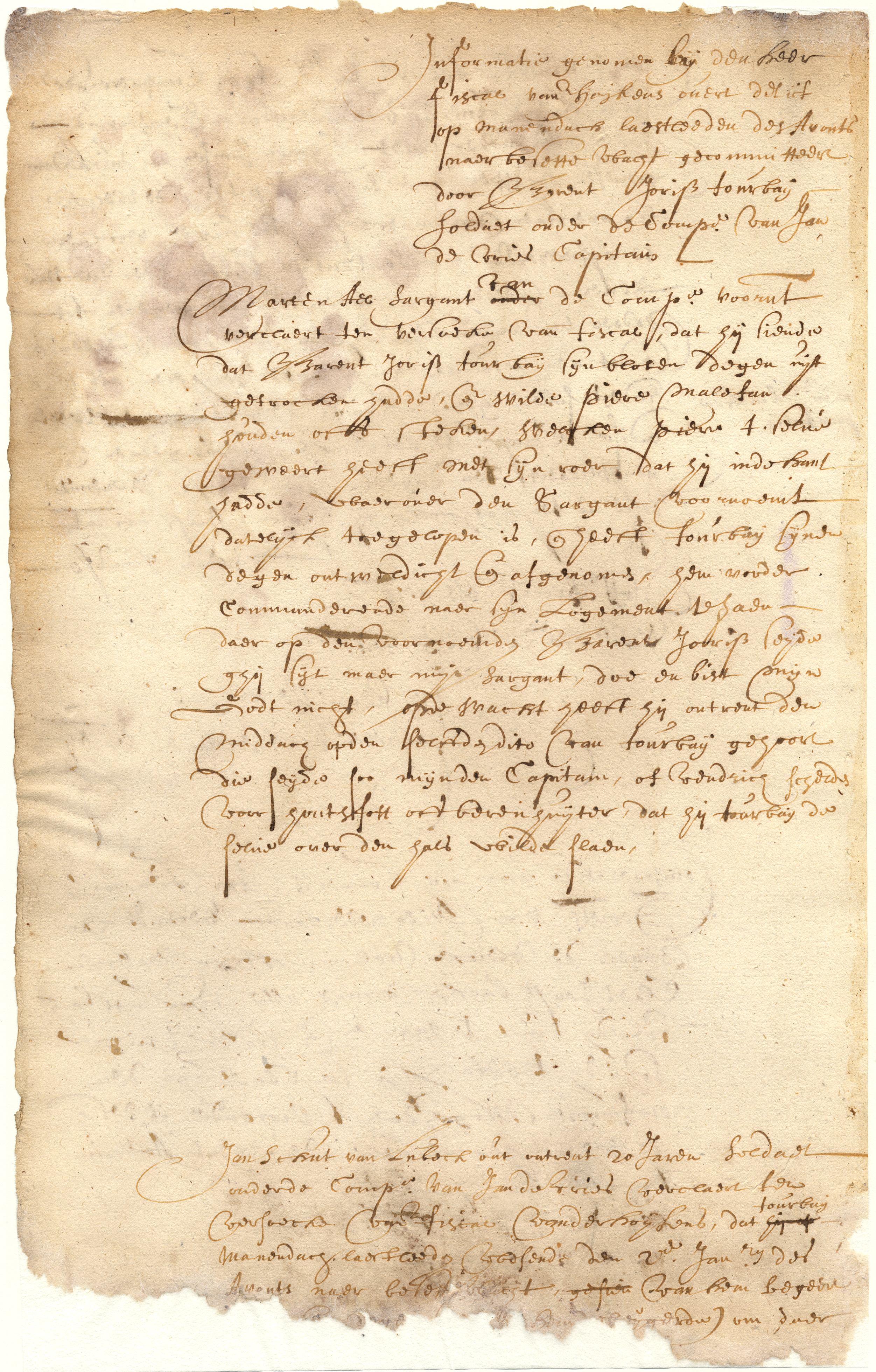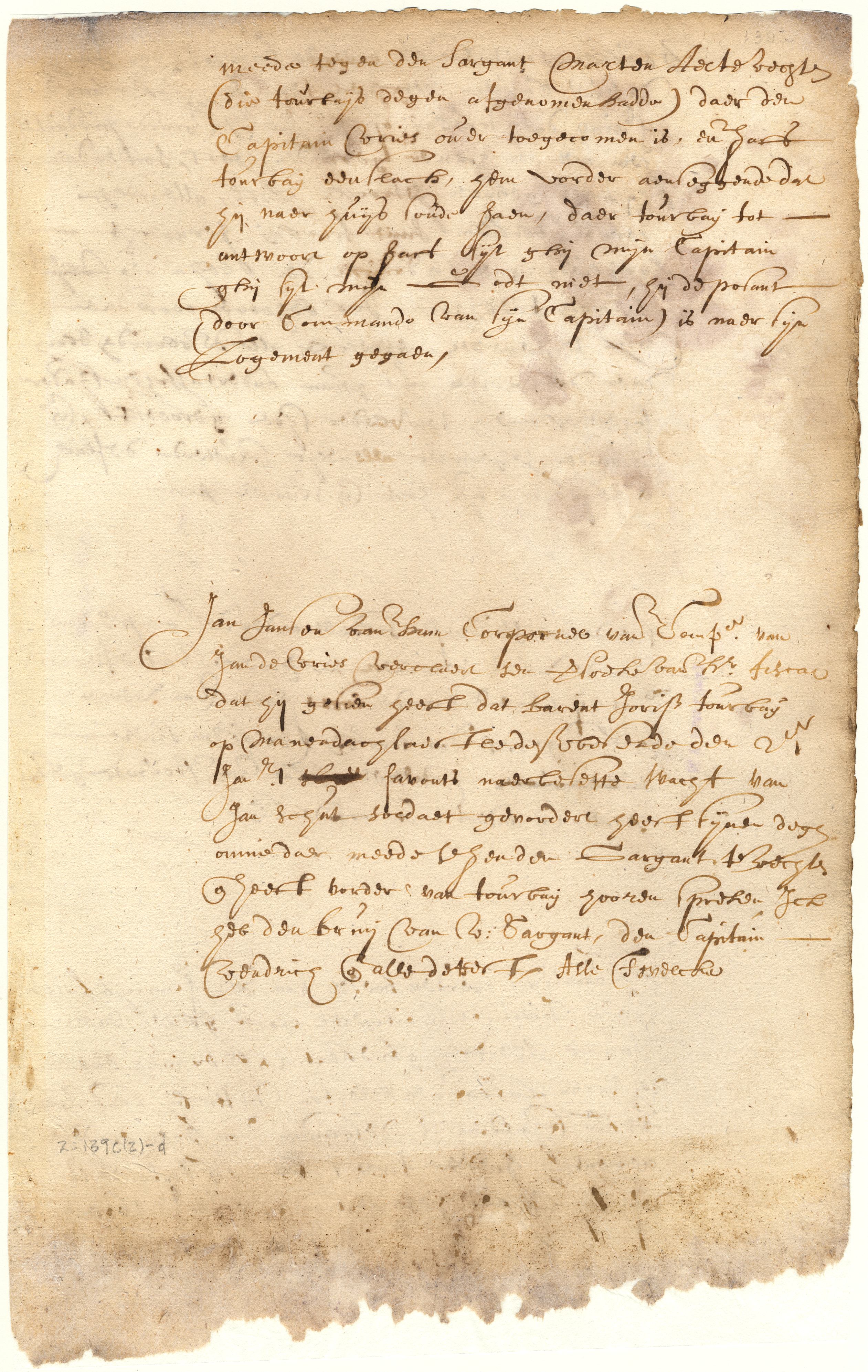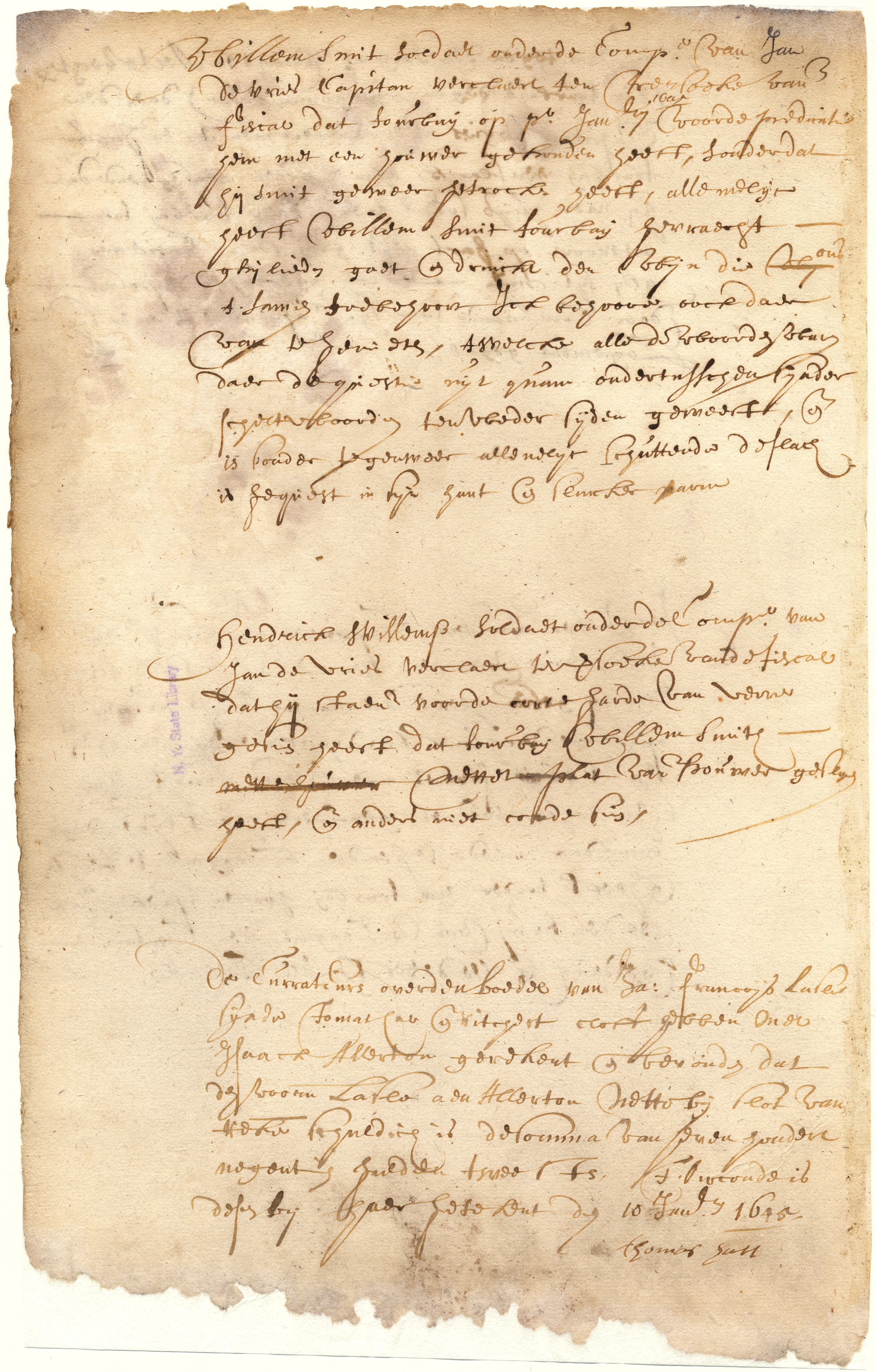Information taken by Fiscal van [ der ] Hoykens respecting the offense committed by Barent Jorisz Tourbay, a soldier of Captain Jan de Vries’ company, on last Monday evening, after mounting the guard.
Marten Ael, sergeant of the above mentioned company, declares at the request of the fiscal that, seeing that Barent Jorisz had drawn his naked sword and intended to cut or stab Piere Malefan, who defended himself with the musket which he had in his hand, the sergeant aforesaid immediately ran toward them and wrested and took away the sword from Tourbay, commanding him further to go to his quarters. Whereupon the aforesaid Barent Jorisz said: “You are only my sergeant, du bist mein Gott nicht.”[1] About noon on the same day, at the guard house, he heard Tourbay say: “If the captain or the ensign call me a dog or bear skinner, I, Tourbay, shall cut their throats.”
Jan Schut, of Lubeck, aged about 20 years, a soldier in Jan de Vries’ company, declares at the request of Fiscal van [ der ] Hoykens that on Monday last, it being the 2nd of January, in the evening, after mounting the guard, Tourbay asked him for [ his ] sword [ which ] he refused, in order to fight Sergeant Marten Ael with it, he having taken away Tourbay’s sword. Captain de Vries thereupon came and gave Tourbay a blow, commanding him further to go home, to which Tourbay gave for answer: “You are my captain, you are not my God.” He, the deponent, by order of the captain, went to his quarters.
Jan Jansen van [ den ] Ham, corporal of Jan de Vries’ company, declares at the request of the fiscal that he saw Barent Jorisz Tourbay last Monday, it being the 2nd of January, in the evening, after mounting the guard, ask Jan Schut for his sword to fight the sergeant with it, and further heard Tourbay say: “I don’t care a rap about you, sergeant, the captain, the ensign and all the rest.” All of which . . .[2]
Willem Smit, soldier in Captain Jan de Vries’ company, declares at the request of the fiscal that on the 1st of January 1645, before the preaching, Tourbay struck him with a cutlass, although he, Smit, did not draw his sword, Willem Smit having merely said to Tourbay: “You fellows go and drink the wine which belongs to us in common. I ought also to have a share of it.” Which words were all that caused the quarrel. Meanwhile abusive language was used on both sides and without making any resistance, only parrying the blow, he was wounded in his hand and left arm. Hendrick Willemsen, soldier in Jan de Vries’ company, declares at the request of the fiscal that, standing before the guard house, he saw from afar that Tourbay struck Willem Smith with the flat of the cutlass, but he could not see anything else.




